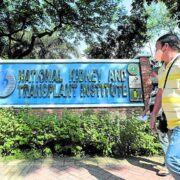SC throws out defense of sexual predisposition, past sexual behavior in child sexual trafficking

Evidence showing a victim’s sexual predisposition or past sexual behavior is not admissible in any criminal proceeding involving child sexual abuse, the Supreme Court said.
In an 18-page ruling dated May 22 but made public only on Friday, the high court’s Second Division found Adrian Adrales guilty of qualified trafficking in persons under Republic Act No. 9208, also known as the Anti-Trafficking of Persons Act of 2003.
In July 2011, Adrales approached the 14-year-old victim while she was walking home from a party, according to court records.
He arranged for her to have sex with a man named Emong, for which he subsequently paid her P800.
The arrangement took place twice more with different men, with Adrales waiting outside during the encounters to collect payment afterward.
Adrales was found guilty of qualified trafficking in persons by the Regional Trial Court and the Court of Appeals.
He asserted in his defense that the victim was already known to be a prostitute in their community.
However, the Supreme Court, in its decision on G.R. No. 242473 penned by Associate Justice Antonio Kho Jr., rejected Adrales’ assertion that the victim’s prior status absolved him of responsibility.
Under the sexual abuse shield rule outlined in Section 30(a) of the Rule on Examination of a Child Witness, the Supreme Court said that evidence offered to prove that “a victim’s sexual predisposition or past sexual behavior is not admissible in any criminal proceeding involving child sexual abuse.”
“The rule aims to safeguard the alleged victim against the invasion of privacy, potential embarrassment, and sexual stereotyping that is associated with the public disclosure of intimate sexual details and the infusion of sexual innuendo into the fact-finding process,” the SC said.
In affirming Adrales’ conviction, the high court determined that all elements of trafficking under RA 9208 were clearly established.
The high court noted that trafficking occurs when individuals are recruited, transported, or transferred—regardless of their consent or knowledge—through threats, coercion, deception, or abuse of power for exploitative purposes such as prostitution.
The crime is classified as qualified trafficking when it involves minors, and it carries a life sentence.
The Supreme Court found that the prosecution proved that Adrales exploited the victim’s vulnerability by offering her money in exchange for engaging in sexual activities with different men.
It was noted that Adrales was present with the victim before, during, and after the encounters, from which they both profited.
Adrales was sentenced to life imprisonment, fined P6 million, and ordered to pay the victim P1.8 million in damages.



















